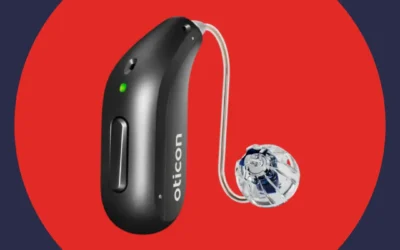Tinnitus affects about 14% of adults worldwide. That’s millions of people living with persistent ringing, buzzing, or clicking in their ears — often without relief. While no cure exists, research continues to uncover lifestyle factors that may influence the condition. One emerging area of interest? Diet.
Studies suggest certain foods may help lower tinnitus risk by supporting auditory health. While findings are still developing, adopting a nutritious eating pattern may reduce your odds of experiencing tinnitus — and support your hearing overall.
Are your ears making other strange sounds? Understand the other sounds your ears are making.
What Is Tinnitus?
Tinnitus is the perception of sound when no external noise is present. It may sound like:
- Ringing
- Buzzing
- Hissing
- Clicking
- Roaring
Tinnitus varies in intensity and duration. For some, it’s a mild annoyance. For others, it disrupts sleep, focus, and quality of life.
While often linked to hearing loss, tinnitus can also be caused by noise exposure, stress, medications, or health conditions like Ménière’s disease.
Discover the unique causes of tinnitus.

Can Food Choices Really Influence Tinnitus?
It may seem surprising, but yes — your diet could play a role in tinnitus prevention. Research has linked certain nutrients and food patterns with better ear and nerve health, including:
- Improved blood circulation
- Reduced inflammation
- Better antioxidant activity
These factors may help protect the inner ear and reduce tinnitus triggers.
One large review found that increased intake of fruit, fiber, dairy, and caffeine was associated with a lower risk of tinnitus. While this doesn’t prove a direct cause-and-effect relationship, the patterns are worth exploring.
Key Nutrients That May Lower Tinnitus Risk
Several nutrients have shown potential benefits for hearing and tinnitus prevention. Let’s look at each:
1. Antioxidants (Vitamin C, E, A)
These help neutralize free radicals, which can damage cells in the inner ear.
2. Magnesium
May protect the ear from noise-related damage and support nerve function.
3. B Vitamins (especially B12)
Important for nerve health and energy production in auditory cells.
4. Omega-3 Fatty Acids
Found in seafood, these reduce inflammation and may support vascular health.
5. Potassium
Maintains fluid balance in the inner ear.
These nutrients are found in a balanced diet — especially one rich in fruits, vegetables, lean proteins, whole grains, and healthy fats.
Seafood: A Clear Winner for Tinnitus Prevention
A recent study involving over 73,000 women found a compelling link between seafood intake and reduced tinnitus risk.
Here’s what researchers discovered:
- 1 serving of seafood per week: 13% lower risk
- 2+ servings per week: Up to 23% lower risk
- Tuna, shellfish, and light-meat fish: Each lowered risk by 10–18%
- Fish oil supplements: Associated with higher risk
Researchers believe the benefit comes from whole seafood’s unique combination of nutrients — including omega-3s, vitamin D, and B vitamins — not supplements.
Foods That Might Make Tinnitus Worse
Evidence is mixed, but some people report worsening tinnitus symptoms after consuming certain foods or drinks. These include:
Salt
People with Ménière’s disease often find salt worsens symptoms, including tinnitus.
Alcohol
Though not proven to worsen tinnitus directly, alcohol can impact sleep and blood pressure.
Caffeine
While some studies show protective effects, others report caffeine as a trigger.
Sugar and Processed Carbs
High glycemic loads may impact blood vessel function and contribute to hearing issues.
Keep in mind, reactions vary. What affects one person may not affect another.

Tracking Your Triggers: The Food Diary Approach
You can test whether specific foods affect your tinnitus by keeping a food and symptom diary. This tool helps you detect patterns and make informed dietary changes.
Here’s how to do it:
- Log everything you eat and drink daily.
- Note symptoms immediately and several hours after eating.
- Eliminate suspect foods for one week.
- Reintroduce them slowly and monitor changes.
Be as specific as possible. Instead of just “cheese,” write “brie” or “cheddar.” You may discover one bothers you while another doesn’t.

Diet Patterns vs. Single Nutrients: Which Matters More?
While many studies focus on single nutrients, researchers now believe whole diet patterns may offer more insight.
Why? Because nutrients interact. And foods are rarely eaten in isolation.
A healthy eating pattern often includes:
- High intake of vegetables, fruit, legumes, whole grains, and seafood
- Limited processed foods, red meat, added sugar, and sodium
- Balanced levels of fats, prioritizing polyunsaturated over saturated
This approach supports not just hearing, but heart, brain, and metabolic health too.
The Mediterranean Diet and Hearing Health
The Mediterranean diet, rich in whole foods and healthy fats, may offer tinnitus protection.
It includes:
- Olive oil
- Fresh fruits and vegetables
- Legumes and nuts
- Moderate fish and poultry
- Limited dairy and red meat
Studies link this diet to reduced inflammation, improved blood flow, and lower chronic disease risk. Some findings suggest it may help maintain better hearing as we age — and possibly reduce tinnitus risk too.
Should You Take Supplements for Tinnitus?
It’s tempting to reach for a quick fix, especially when facing a chronic condition. But most dietary supplements marketed for tinnitus don’t have proven benefits.
In fact, one study found that fish oil supplements may increase tinnitus risk. Concerns include:
- Inconsistent labeling
- Contamination with heavy metals
- Unknown dosages
- Lack of FDA regulation
If you’re considering supplements, always consult your hearing care provider first. They can guide you safely.
Tinnitus and Sleep: What You Eat Matters
Many people with tinnitus report increased symptoms at night. Diet may influence this in two ways:
- Certain foods (like caffeine or alcohol) can disrupt sleep cycles.
- Poor sleep worsens tinnitus perception and stress.
Try these sleep-friendly nutrition tips:
- Avoid caffeine after 2 p.m.
- Skip alcohol in the evening
- Eat a light, balanced dinner
- Stay hydrated, but not overly so before bed
Getting quality sleep may reduce how much you notice your tinnitus.
Lifestyle Habits That Complement a Healthy Diet
Diet is powerful, but it’s just one part of hearing health. To lower your tinnitus risk and support your ears, try these additional strategies:
- Use ear protection in loud environments
- Manage stress with meditation, yoga, or hobbies
- Exercise regularly to improve circulation
- Avoid smoking, which impairs blood flow
- Schedule regular hearing evaluations
Together, these habits build a strong foundation for lifelong hearing wellness.
It’s never too early to take care of hearing health. Explore how hearing loss is affecting millennials and Gen Z.
What If You Already Have Tinnitus?
While diet may not cure tinnitus, healthy eating may still help reduce its impact. Good nutrition supports brain function, sleep quality, and emotional resilience — all important in tinnitus management.
Plus, your hearing care provider can recommend other proven options, including:
- Hearing aids with tinnitus features
- Sound therapy
- Cognitive behavioral therapy (CBT)
- Tinnitus retraining therapy (TRT)
Learn about the comorbidities of hearing loss.
Take Charge of Your Hearing Health Today
You don’t need to overhaul your diet overnight. Start with small, manageable changes — and build from there.
A healthy diet won’t eliminate tinnitus entirely, but it may help lower tinnitus risk, protect your hearing, and improve your overall well-being. Our hearing care providers offer support tailored to your needs — whether you’re managing tinnitus or looking to prevent it.
Contact American Hearing + Audiology today to schedule a hearing consultation and start your journey toward better hearing health.



